Rock Content presents
An Interactive Timeline of Women in Technology
26% of the computing workforce in 2019, were women and only 3% were Black, 7% Asian, and 2% Hispanic.
18% of Chief Information Officer positions in the top 1000 Companies are held by women.


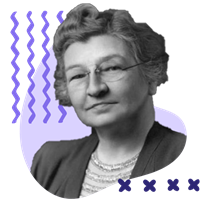
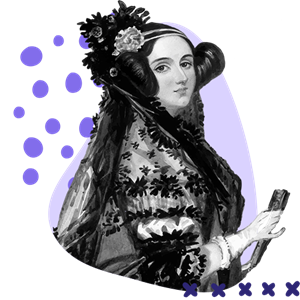
Ada Lovelace
Mathematician and Writer
1815 - 1852
Augusta Ada Byron King, Countess of Lovelace (10 December 1815 – 27 November 1852) was an English mathematician and writer, mostly known for being the mother of programming languages with her work on the calculation machine called Analytical Engine, alongside Charles Babbage's. She was the first to recognize that the machine had applications beyond pure calculation, and published the first algorithm intended to be carried out by such a machine. As a result, she is widely regarded as the first to recognize the full potential of computers and one of the first computer programmers.



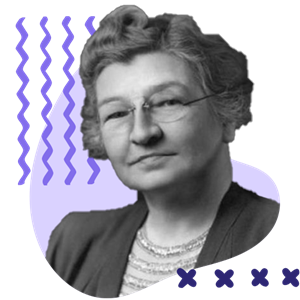
Edith Clarke
Electrical Engineer
1883 - 1959
Edith Clarke (February 10, 1883 – October 29, 1959) was the first woman to be professionally employed as an electrical engineer in the United States, and the first female professor of electrical engineering in the country. She was the first woman to deliver a paper at the American Institute of Electrical Engineers, the first female engineer whose professional standing was recognized by Tau Beta Pi, and the first woman named as a Fellow of the American Institute of Electrical Engineers. She specialized in electrical power system analysis and wrote Circuit Analysis of A-C Power Systems.
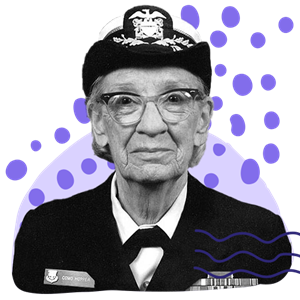
Grace Hopper
Computer Scientist and United States Navy
1906 - 1992
Grace Brewster Murray Hopper (née Murray December 9, 1906 – January 1, 1992) was an American computer scientist and United States Navy rear admiral. One of the first programmers of the Harvard Mark I, the computer, she was a pioneer of computer programming who invented one of the first linkers. She popularized the idea of machine-independent programming languages, which led to the development of COBOL, an early high-level programming language still in use today.


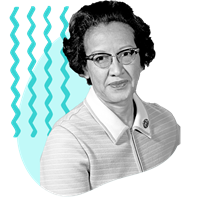
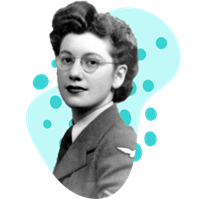

Dorothy Johnson Vaughan
Mathematician and NASA employed
1910 - 2008
Dorothy Johnson Vaughan (September 20, 1910 – November 10, 2008) was an American mathematician and human-computer who worked for the National Advisory Committee for Aeronautics (NACA), and NASA, at Langley Research Center in Hampton, Virginia. In 1949, she became acting supervisor of the West Area Computers, the first African-American woman to supervise a group of staff at the center.

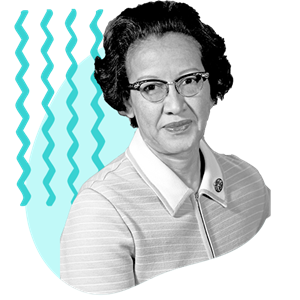
Katherine Johnson
Mathematician
1918 - 2020
Creola Katherine Johnson (August 26, 1918 – February 24, 2020) was an American mathematician whose calculations of orbital mechanics as a NASA employee were critical to the success of the first and subsequent U.S. crewed spaceflights. During her 35-year career at NASA and its predecessor, she earned a reputation for mastering complex manual calculations and helped pioneer the use of computers to perform the tasks. The space agency noted her "historical role as one of the first African-American women to work as a NASA scientist".



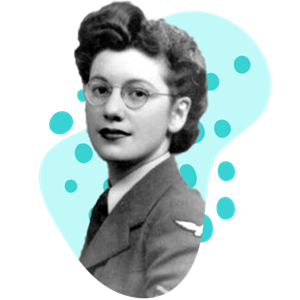
Joan Clarke
Cryptanalyst and Numismatist
1917 - 1996
Joan Elisabeth Lowther Murray, (24 June 1917 – 4 September 1996) was an English cryptanalyst and numismatist best known for her work as a code-breaker at Bletchley Park during the Second World War. Although she did not personally seek the spotlight, her role in the Enigma project that decrypted Nazi Germany's secret communications earned her awards and citations, such as appointment as a Member of the Order of the British Empire (MBE), in 1946.
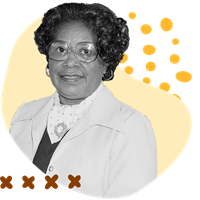

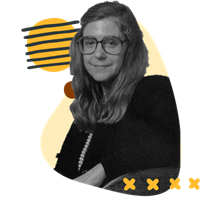

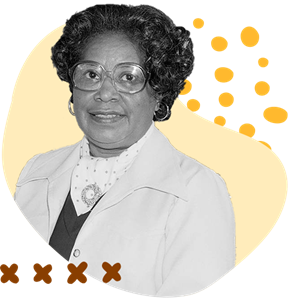
Mary Winston Jackson
Mathematician and Aerospace Engineer
1921- 2005
Mary Jackson (April 9, 1921 – February 11, 2005) was an American mathematician and aerospace engineer at the National Advisory Committee for Aeronautics (NACA), which in 1958 was succeeded by the National Aeronautics and Space Administration (NASA). She worked at Langley Research Center in Hampton, Virginia, for most of her career. She started as a computer at the segregated West Area Computing division in 1951. She took advanced engineering classes and, in 1958, became NASA's first African-American female engineer.





Margaret Hamilton
Computer Scientist, and Systems engineer
1936
Margaret Heafield Hamilton (born August 17, 1936) is an American computer scientist, systems engineer, and business owner. She was director of the Software Engineering Division of the MIT Instrumentation Laboratory, which developed on-board flight software for NASA's Apollo program. She later founded two software companies — Higher Order Software in 1976 and Hamilton Technologies in 1986, both in Cambridge, Massachusetts.

Radia Perlman
Computer Programmer and Network Engineer
1951
Radia Joy Perlman (born December 18, 1951) is an American computer programmer and network engineer. She is most famous for her invention of the spanning-tree protocol (STP), which is fundamental to the operation of network bridges, while working for Digital Equipment Corporation. She also made large contributions to many other areas of network design and standardization, such as link-state routing protocols.





Susan Kare
Artist and Graphic Designer (Iconographic)
1954
Susan Kare (born February 5, 1954) is an American artist and graphic designer best known for her interface elements and typeface contributions to the first Apple Macintosh from 1983 to 1986. She was employee #10 and Creative Director at NeXT, the company formed by Steve Jobs after he left Apple in 1985. She was a design consultant for Microsoft, IBM, Sony Pictures, and Facebook, and she is now an employee of Pinterest. As an early pioneer of pixel art and of the graphical computer interface, she has been celebrated as one of the most significant technologists of the modern world.
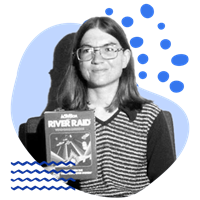



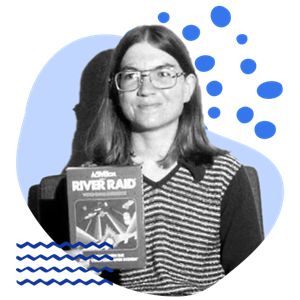
Carol Shaw
First female Game Designer and Programmer
1955
Carol Shaw (born 1955) is one of the first female game designers and programmers in the video game industry. She is best known for creating the Atari 2600 vertically scrolling shooter River Raid (1982) for Activision. She worked for Atari, Inc. from 1978-1980 where she designed multiple games including 3-D Tic-Tac-Toe (1978) and Video Checkers (1980), both for the Atari 2600. She left game development in 1984 and retired in 1990.





Dilma M. da Silva
Systems Software Researcher
19XX
Dilma Menezes Da Silva is a Brazilian-American systems software researcher known for her work in cloud computing. She holds the Ford Motor Company Design Professorship II at Texas A&M University, and is head of the Department of Computer Science and Engineering at Texas A&M.

Soledad Antelada Toledano
Cybersecurity Engineer
19XX
Computer systems engineer in the Cyber Security Division at Lawrence Berkeley National Laboratory, United States Department of Energy and Founder of GirlsCanHack, an organization dedicated to engaging women in the field of cybersecurity and encouraging them to pursue this career.





Ethel Delali Cofie
IT professional and entrepreneur
19XX
Ethel Delali Cofie is a Ghanaian IT professional, entrepreneur and consultant. She is the founder of Women in Tech Africa. She is Recognised as Africa's Most Influential Woman in Business and Government for ICT by CEO Global and also shortlisted for United Nations GEM Tech Award in October 2014.